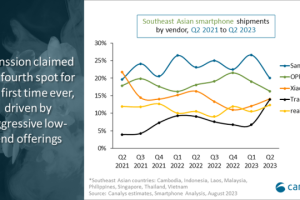Healthcare CIOs are preparing to take new initiatives in technology. Many healthcare managers are eager to get started on new projects that will give them the opportunity to test some of the new innovations that others have been engaged in the industry. CIOs are expected to pay attention to five trends in healthcare technology in 2019.
Artificial Intelligence – Over the past few years, artificial intelligence has demonstrated significant growth in maturity and adoption. Its uses include image processing in healthcare to detect anomalies that radiologists are unable to detect and analyze medical charts to identify patients at high risk. Healthcare CIOs who haven’t adopted AI should plan to start their journey in 2019 to make sure they don’t fall back.
Advanced Analytics – Business intelligence and analytics adoption has increased across multiple departments in hospitals. Hospital operations, infectious diseases, readmission rates, population outcomes and more are monitored using dashboards. This trend has encouraged other departments to look at it on their own. In 2019, more dashboards with advanced insights using machine learning and data mining capabilities will continue to be adopted. In order to make these initiatives operational, IT will need to lead these initiatives and support data integration and access.
Hybrid Cloud Deployment – Both VMware and Microsoft have improved their data center server products to facilitate the cloud transition. The latest versions of Windows Server 2019 and VMware Cloud support a hybrid setup where Azure or Amazon can be used in conjunction with on-site server deployment and with little effort allow for faster and easier server and data migration to the cloud. This flexibility facilitates the pain of moving to the cloud for hospitals staying in the premises and gives them the opportunity to use the cloud for some of their growing needs for storage and disaster recovery in 2019.
Virtual Reality – Thanks to new hardware headsets and advances in 3D rendering, virtual reality gained more popularity in 2018, and this year it is among the top trends in healthcare technology. Healthcare CIOs in their hospitals need to consider the different cases of use for virtual reality. One use case is virtual reality-based clinician training where surgeries and other 3D educational sessions can be experienced. Virtual reality also allows patients for anxiety treatment, stress relief, and physical therapy to immerse themselves in 3D worlds.
Blockchain – Last year, blockchain was one of the most popular healthcare technology trends and it remains a hot topic in 2019— if widely discussed. Blockchain was attractive to many industries due to its ability to transmit data across participating computers while ensuring that data is valid and authentic. Recently, Gartner predicted that the value added for business by blockchain will grow to just over $360 billion by 2026. By 2030, according to Gartner, that number will rise to over $3.1 trillion. Healthcare CIOs will need to evaluate the technology and understand their potential benefits, such as secure data exchange for healthcare.




























